A significant part of our experience in Timor-Leste was working for several years with fellow Global Ministries mission co-worker Carlos Madrazo. We were sad to learn a few days ago that he has died. We first met Carlos in 2009. At the time he’d been in Timor for about 3 years I think. Carlos was what I’d call a missionary’s missionary. He was born in the Philippines and served various U.S. based church organizations in Nepal, China, Indonesia, Timor-Leste and North America. At least those are the places I remember and heard him tell stories about. There may have been others. Carlos had a PhD. and other such credentials, but he was a humble man. He was always more interested in relating to village farmers and rural church pastors than bigwigs of any kind. As long as I knew him at least, Carlos Madrazo was about the grassroots.
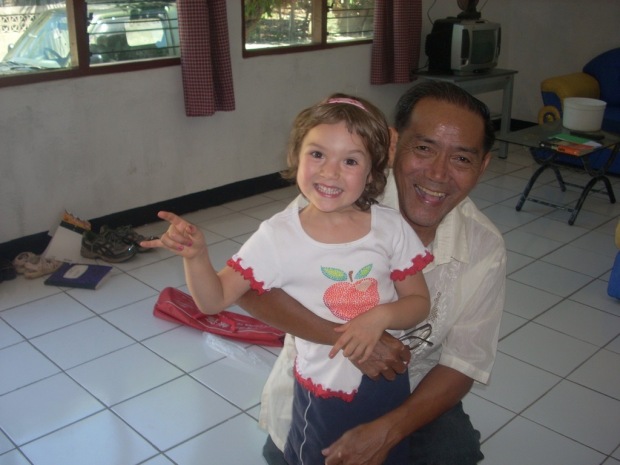
Carlos with Hannah in 2009
When we met Carlos he was about 75 but you’d never have known it. He was full of enthusiasm, energy and had a vital (if sometimes inconvenient!) sense of humor. Knowing we had a 5 year-old daughter, when we got to Timor-Leste he presented us with two pet turtles as a welcome gift – just what you need when you arrive bleary-eyed in a new country! Carlos was a friend and mentor for us and a grandpa figure for our kids Hannah and Simon.
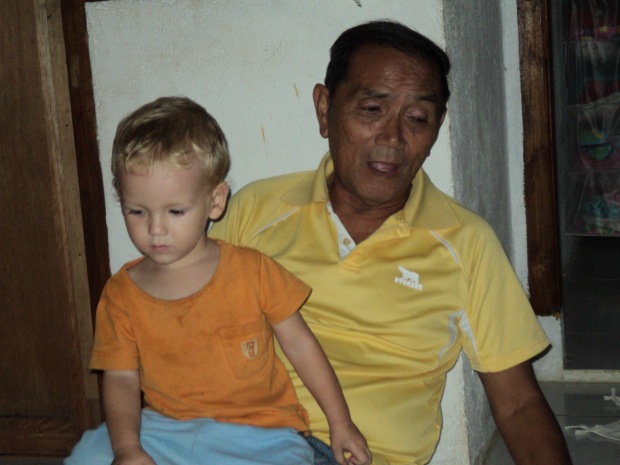
Carlos with Simon in 2012
Carlos’s assignment in Timor-Leste, like the other places he served, was around agricultural development and organizational management. One of the many things he did here was accompany our IPTL partners in figuring out how many congregations and members they had and developing a strategic plan for their ministry. Timor-Leste is a rugged and rural country and at the time it was just emerging from the Indonesian occupation. Things were chaotic, communication was difficult and the only way to do such work then — or now — was to go to the villages.
Over the years Carlos made it to every single one of IPTL’s 50 + congregations, most of which are in rural mountain areas many hours outside the capitol Dili. He’d drive his Mitsubishi Pajero up and down Timor’s mountains like a stunt man. No doubt many prayers were uttered in the passenger seat of that car! It was a tiny jeep-type SUV but when he was in the village he’d sleep in the back seat and live on instant noodles, coffee and cassava leaves.
What I remember most about Carlos was his affectionate manner and humorous way of relating to people. Aside from being a jokester he loved to take pictures of people and make them into slide shows put to music. Before he left a village he would show them to people. It was something that always lifted their spirits. It was his one of his ways of proclaiming the joy and freedom of the gospel wherever he went.
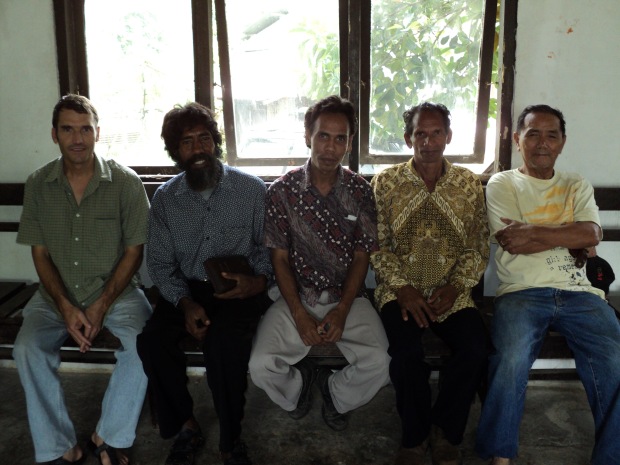
With leaders of Immanuel Church on one of Carlos’s trips to Lospalos
During the years our service in Timor-Leste overlapped, on trips to Dili I always looked forward to a beer with Carlos in one of Dili’s several Filipino-owned bars. Aside from the chance to process the challenges we faced in our work, the guy loved to socialize and sing karaoke – and he was good! On Sunday’s he had no use for worship Dili’s big churches. He’d always drive out of town at least an hour to visit a rural congregation, enjoy Timor’s stunning scenery and find out how the crops were doing.
Like all of us, Carlos had his quirks. At times he was stubborn as a mule and hard to work with. But he had a heart of gold. He was passionate about justice for the poor and serving others in the way of Christ. Although aspects of him were very American (he was a proud Eagle Scout), he loved living and serving in Asia. Even in his late 70s he was still up for the challenge of learning new languages and using his talents as a farmer and organizer to help people live more self-sufficient, dignified lives.
Rest in peace Carlos. You will be missed.
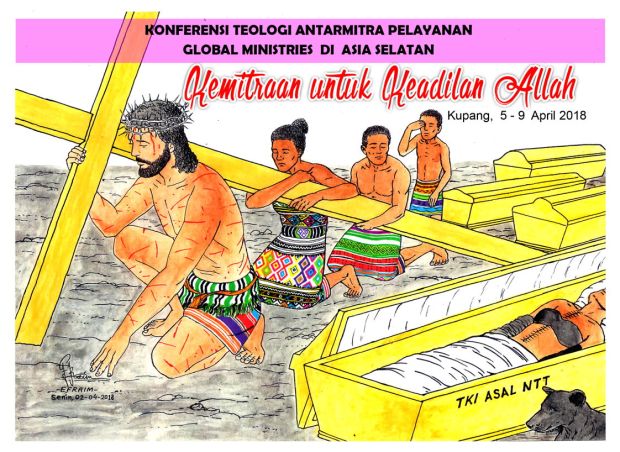
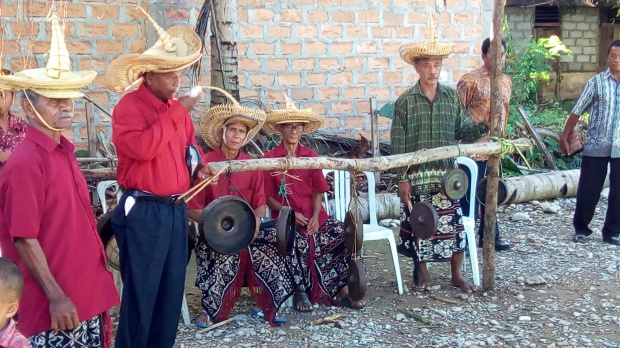
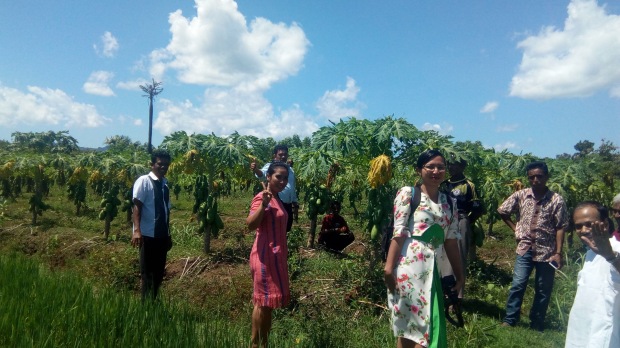
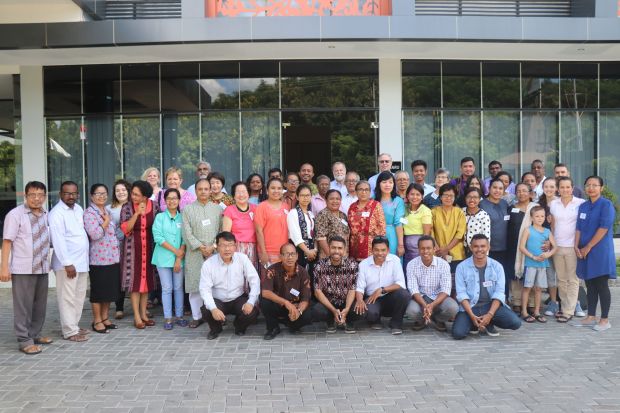
![[]](https://ci5.googleusercontent.com/proxy/lZUvoJd9MR6x8qZm5_plRfuOK5W_Hs-tvTzdxOomHrBo57J5f4BZ0fqMacu3WOwg2Ibm9WtAIa_s9fzc8JkWySAnuun4G3JfMKdp4UUrnTrvduqrYkxPRuTIY8nIoaM09qLbG6wYvrc=s0-d-e1-ft#https://dmnsmycmdpaix.cloudfront.net/uploads/npo/logo/4934/normal_smalllogobpc.png)